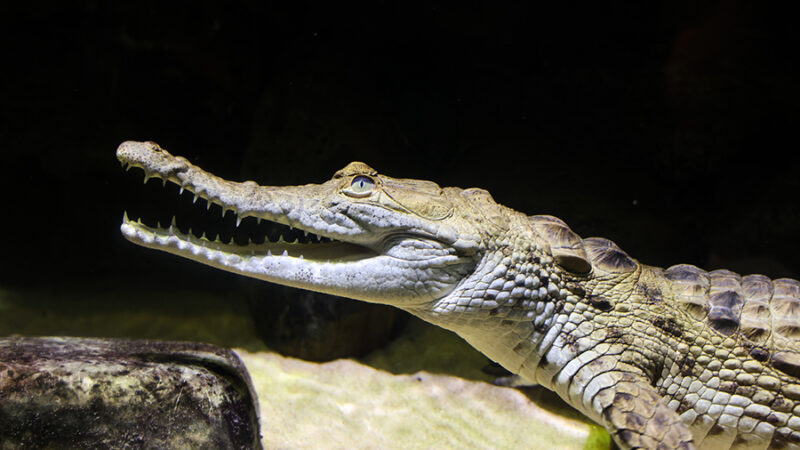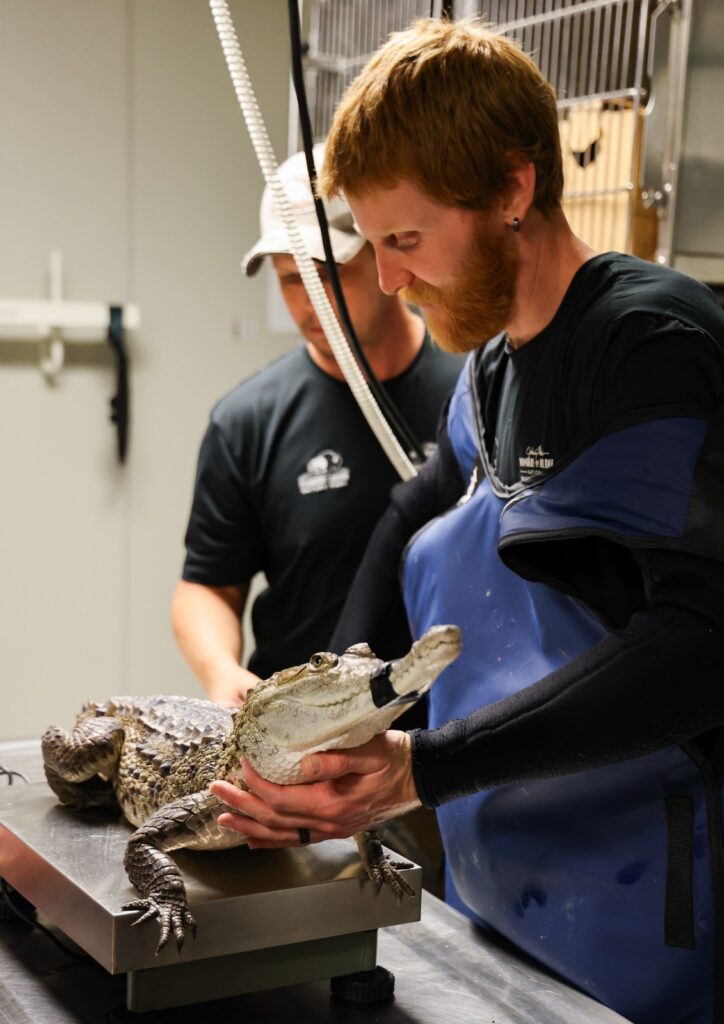Back to Los Llanos: Restoring the Orinoco Crocodile

Published June 7, 2024
Settled in the Llanos – the tropical grassland plains of northwestern South America – lies a mission to help restore the population of the continent’s largest predator. Orinoco crocodiles are identified as a critically endangered species according to the International Union for Conservation of Nature (IUCN). These reptilian giants were hunted in the late 1800s for their skin, meat, eggs, and teeth. Ecologists estimated their populations fell by as much as 80% in the early to mid-1900s. This rapid decline in their numbers has echoed its way into the 21st century. Today, the IUCN estimates that there are only between 250 to 1500 Orinoco crocodiles left.
In 1984, Hato Masaguaral – a private wildlife refuge in Venezuela – began its Orinoco crocodile conservation initiatives. Located in central Venezuela, the ranch began captive breeding the species for its head-start program.
The head-start program ensures Orinocos are given a fighting chance to sustain their numbers. The process begins by indigenous people gathering about 10 nests (females can lay 20-60 eggs per nest). The eggs are then brought to the ranch where they are incubated. Once hatched, the hatchlings are soon distributed to AZA-accredited zoos and aquariums where their health is monitored and their progress is recorded.
Several of the zoos and aquariums are located in the United States and are a temporary home for the crocodiles. They receive quality care according to a particular set of guidelines to ensure the young crocs grow according to schedule so they can be released back to the Llanos at the same time.
Wonders of Wildlife is one of the many zoological institutions in North America participating in the ranch’s head-start program. Guy arrived first at the end of 2021, and Hugo arrived in mid-2022. To preserve their natural instincts as predators, their enclosures mimic the natural environment of the Orinoco River – a river system which flows through the Llanos.

Each institution agrees to follow a husbandry protocol designed by Luis Sigler. Sigler is an AZA Orinoco crocodile Studbook keeper at the Dallas World Aquarium (DWA) in Dallas, Texas. The protocol ensures the young crocodiles will grow to a sufficient size to later be exported back to the ranch. The program Guy and Hugo were a part of included 31 Orinoco’s housed amongst 11 zoos and aquariums across America. DWA, Zoo Miami, and Gladys Porter Zoo were included in this number and currently serve as the only facilities in the nation who breed adult Orinoco crocodiles. DWA is the central hub for all head-start Orinoco’s in North America – meaning once all the crocodiles meet proper size and age requirements, they will regroup at DWA for their transit to Hato Masaguaral.
As of June 4, 2024, Guy and Hugo were transported to DWA from Wonders of Wildlife. WOW’s two crocodiles, and the other 29 Orinoco juveniles raised in North America, were kept in a 30-day quarantine before heading back to Venezuela. After their quarantine, agencies in Venezuela coordinated with DWA to assist in the safe transport of the crocs.
Once back at the ranch, they joined an equal number of juveniles from Venezuelan facilities who also raised hatchlings. Over the years, the ranch has perfected the process of releasing Orinoco crocodiles and monitor a few to track their progress. Ten to 20 of the released crocodiles were fitted with satellite tracking devices and will be monitored for at least one year. Each group of Orinoco’s are released at the Santos Luzardo National Park into the Capanaparo River – a protected oasis for these remarkable reptiles.
Although the trade of their skin is now banned, Orinoco crocodiles are still hunted for their meat and eggs. New threats such as habitat loss and pollution of rivers and streams leave the crocodiles struggling to increase their population numbers. As one of the facilities that partakes in this mission, WOW is proud to lend our facility and expertise to help support this crucial conservation effort. The combined teamwork from zoos and aquariums displays how teamwork makes an incredible impact and how conservation is a global concern.
News & Updates
Read the latest news & updates about Wonders of Wildlife.
Recent News & Stories
- Celebrating Service: Veterans Day at Wonders of Wildlife
- Conservation Starts with a Gift: Explore our Holiday Offers
- Commemorating the Life of Capella
- Celebrating NHF Day 2025 at WOW
- National Zookeeper Week at WOW
- How to Celebrate Shark Week
- I Wonder…Why are Animal Ambassadors so Important to Conservation Efforts?
- I Wonder…What Makes Penguin Cove so Cool?
